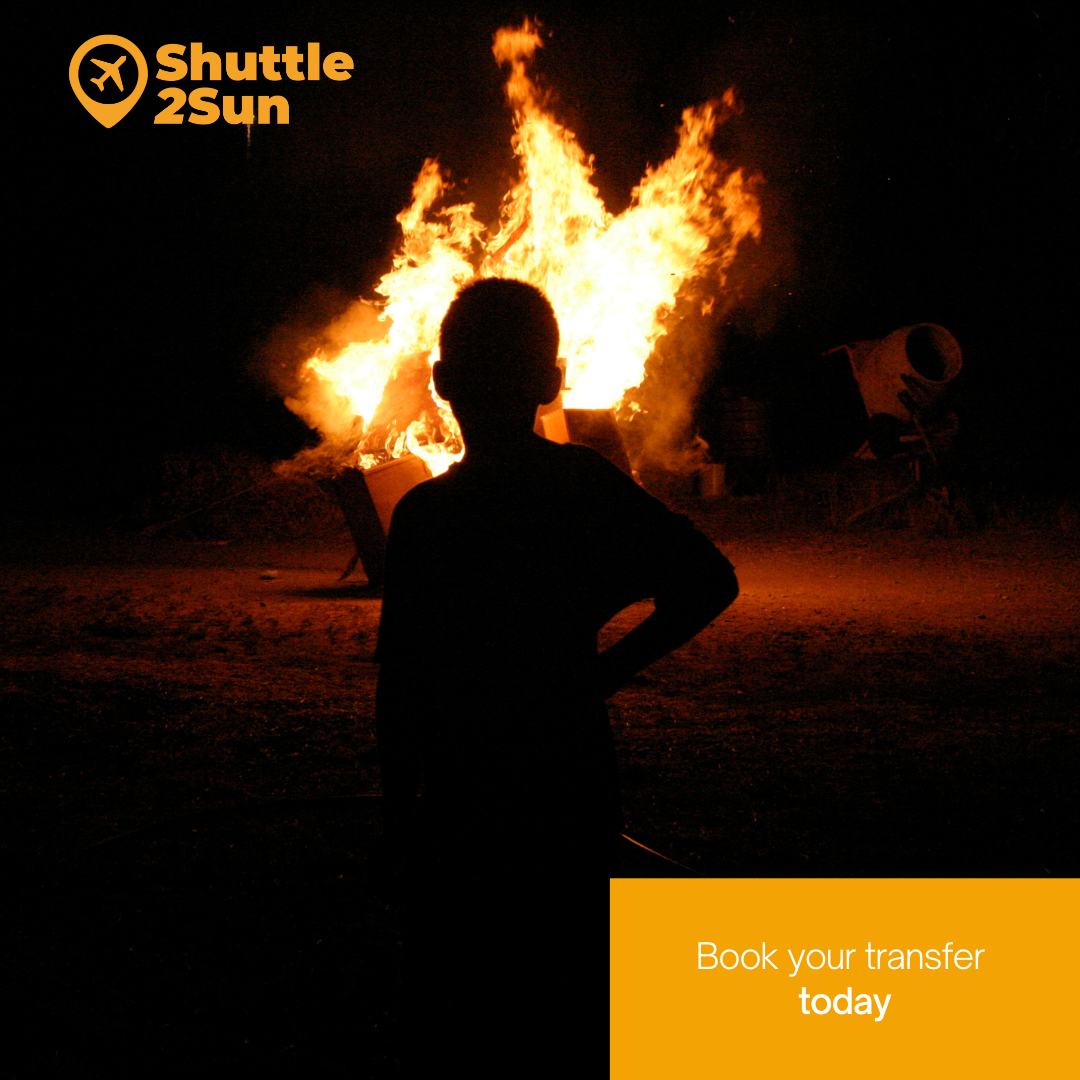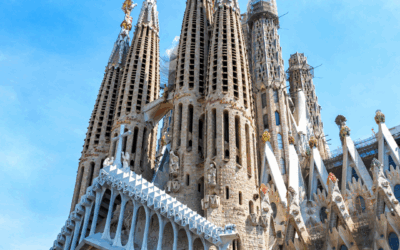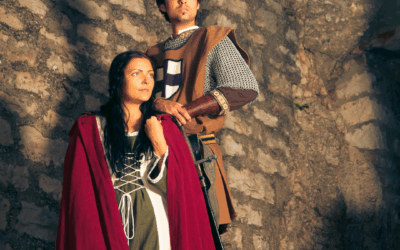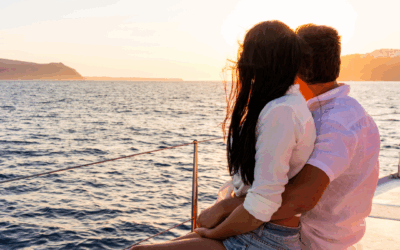The shortest night of the year has arrived and is the most eagerly awaited by many: the ‘víspera de Sant Joan’; in English: the Saint John’s Eve. With bonfires, fireworks and parties, families and friends gather in the streets and on the beaches of different Catalan towns to celebrate the summer solstice.
In Costa Brava, Costa Dorada and Barcelona this celebration is lived to the fullest, celebrated in different ways in each town, but always with common elements such as fire, music and, above all, laughter with your loved ones.
If you want to celebrate the Sant Joan festival on Catalan Coast, we recommend that you travel with Shuttle2Sun‘s low-cost and sustainable shared transfer services and private transfer services, available from Barcelona airport, Barcelona port, Reus airport, Girona airport and Camp de Tarragona AVE train station. Remember that you can book your transfer up to 24 hours in advance.
Why do we celebrate the night of Sant Joan?
The eve of Sant Joan, celebrated on the night of 23rd to 24th June, is one of Catalonia’s most emblematic festivities, mixing pagan and Christian traditions. The festival has its roots in ancient rituals marking the summer solstice, a time when many cultures honoured the sun, fire and the fertility of the earth.
Fire still takes centre stage as a symbol of purification and renewal. Tradition says that burning old objects in the bonfire helps to leave the past behind and attract good luck.
Water also plays a key role; many take the opportunity to bathe in the sea, believing that water has healing properties on this night.
Another important element is the ‘Flama del Canigó’, the protagonist responsible for lighting hundreds of bonfires all over Catalonia, the Valencian Community and the Balearic Islands. This flame is kept all year round in the Castellet de Perpinyà and, on 22 June, it is taken to the top of Canigó.
As for traditional food and drink, the ‘coca de Sant Joan’, accompanied by a good glass of cava, is a must at dinner on this night.
The ‘coca de Sant Joan’ has a long tradition, and it is said that its original round shape symbolised the sun’s disc at the summer solstice.

If you want to experience this tradition in Catalonia, remember that with Shuttle2Sun‘s low-cost and sustainable shared transfer services and private transfer services, you can travel to different locations in the region from Barcelona airport, Barcelona port, Reus airport, Girona airport and Camp de Tarragona AVE train station.
A night celebrated intensely in Barcelona
The Catalan capital is getting ready for this special night. From bonfires and firework displays, to popular dinners and concerts, to dancing with ‘Diables’ and beasts, the different neighbourhoods of Barcelona celebrate the eve of Sant Joan in a variety of ways.
In Plaça Sant Jaume, in the Sants district, the traditional ‘Flama del Canigó’ arrives and is welcomed by the Giants and City’s Eagle to the rhythm of the song ‘Muntanyes del Canigó’. The event culminates with the collection of the flame by the representatives of each neighbourhood, who then light the bonfires that will illuminate the whole city.
Tonight, beaches such as Barceloneta and Sant Sebastià, receive a wave of people eager to spend a fun night, with family or friends, around a bonfire, eating ‘coca de Sant Joan’ and enjoying the music offered by the beach bars.
On Costa Brava, the night of Sant Joan is lived to the fullest
On Costa Brava, the night of Sant Joan is a mixture of tradition and festivity, where fire, music and community come together to welcome the summer in a magical and memorable way.

Traditionally, in coastal towns such as Tossa de Mar, Blanes, Calella de Mar and Pineda de Mar, people gather with their loved ones on the beaches. These are dominated by bonfires and fireworks, which create an incredible spectacle over the sea. Families and friends get together for evening picnics and enjoy a glass of cava while watching the lights reflect on the water.
In Lloret de Mar, the epicentre of nightlife on Costa Brava, the bars and nightclubs are full of young people looking to enjoy the night until dawn.
In Girona, popular neighbourhood dinners and live music are organised in various parts of the city. Beforehand, in the Vista Alegre neighbourhood, representatives from each neighbourhood will gather to collect the ‘Flama del Canigó’. During the afternoon, there will be different activities such as the ‘Diables’ dance and ‘batucada’.
Costa Dorada is not far behind
Costa Dorada shines with its own light during the eve of Sant Joan, offering unique celebrations in each town. In Tarragona, fire, music and ‘castells’ are the stars of the festival.
The arrival of the ‘Flama del Canigó’ at the Serrallo marks the start of a spectacular fire parade that culminates in the lighting of bonfires and open-air dances.
Reus, for its part, is the collection point for the ‘Flama del Canigó’ for all the neighbouring municipalities. During the afternoon, representatives of the towns pass through the Plaça de la Llibertat on tractors, vans, cars and motorbikes, honking their horns and making noise, creating a spectacular festive atmosphere.
In Salou and Cambrils, the highlights are the beach parties and fireworks displays. The euphoria of the night encourages the most daring to jump over the small bonfires and take a night swim in the sea. This crazy act of jumping over bonfires was done in ancient times, in the belief that it would scare away demons and evil spirits.
With Shuttle2Sun‘s low-cost and sustainable shared transfer services and private transfer services, you can arrive to Costa Brava, Costa Dorada and Barcelona, from Barcelona airport, Barcelona port, Reus airport, Girona airport and Camp de Tarragona AVE train station. Remember that you can book your transfer up to 24 hours in advance.



